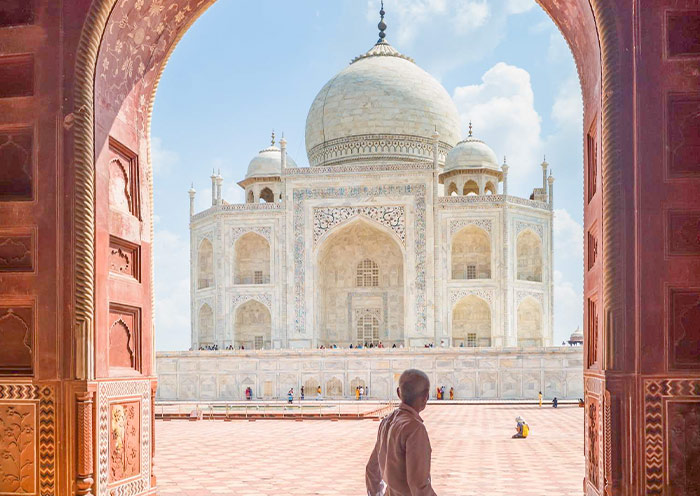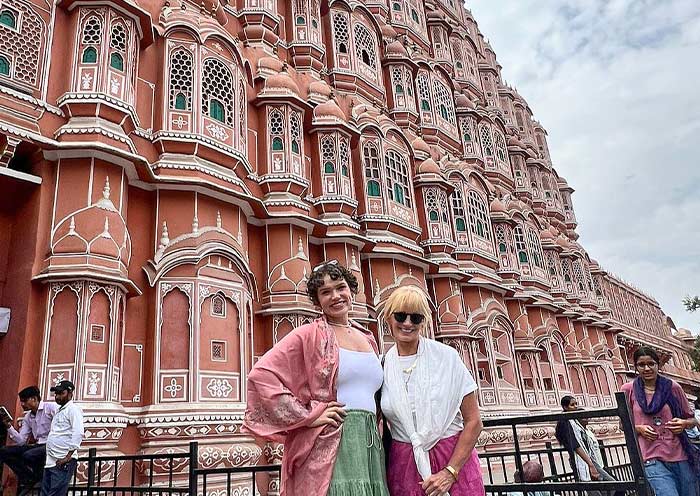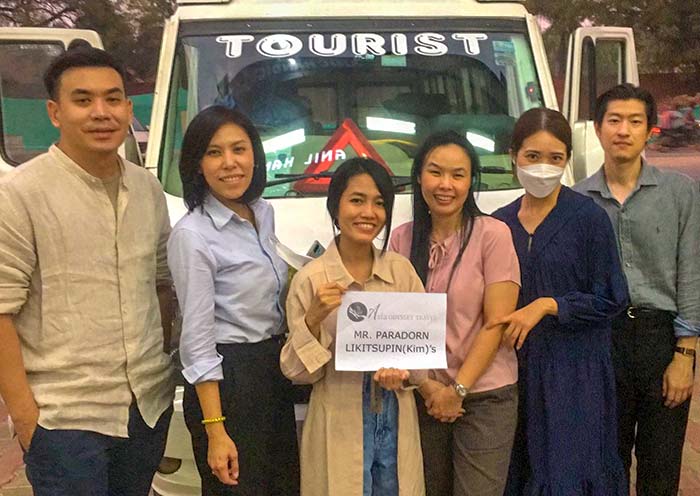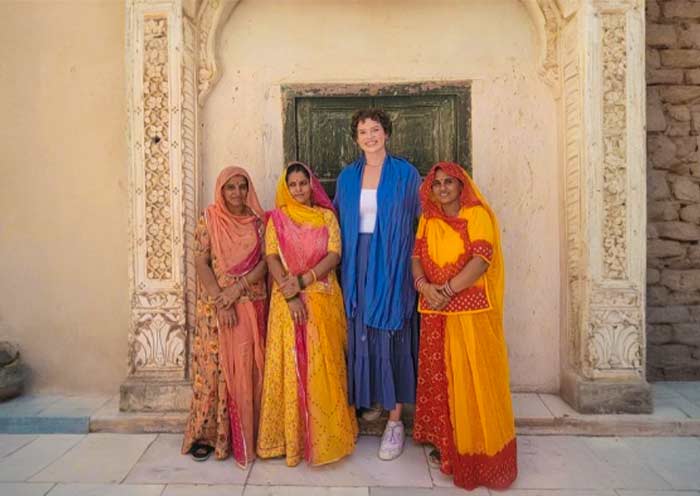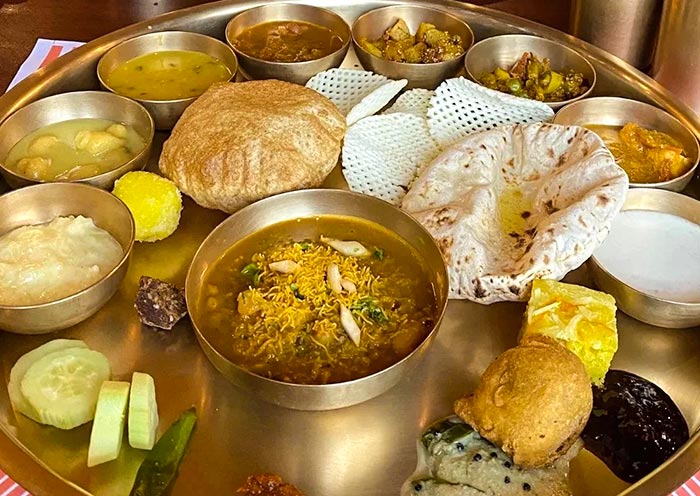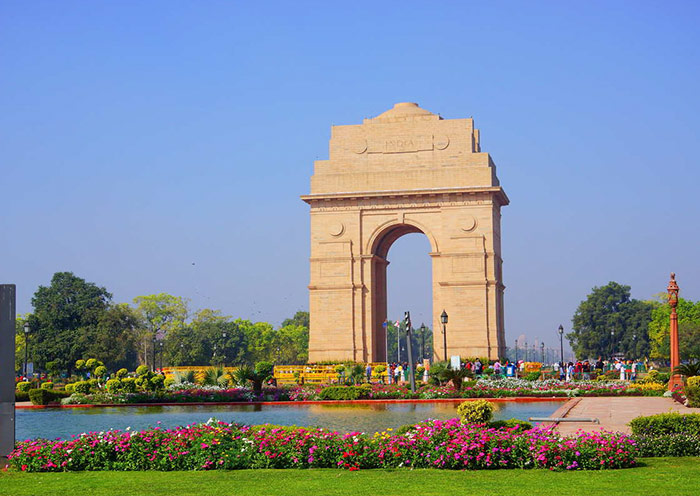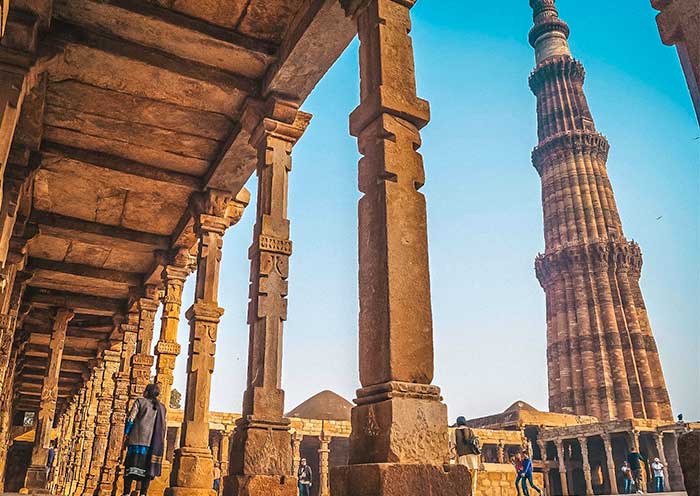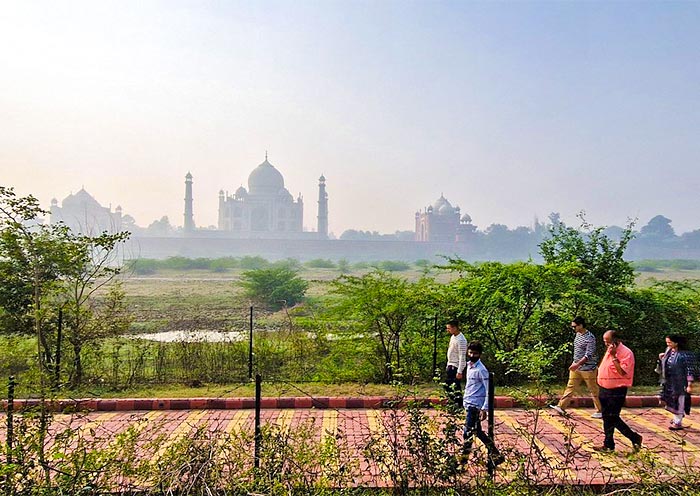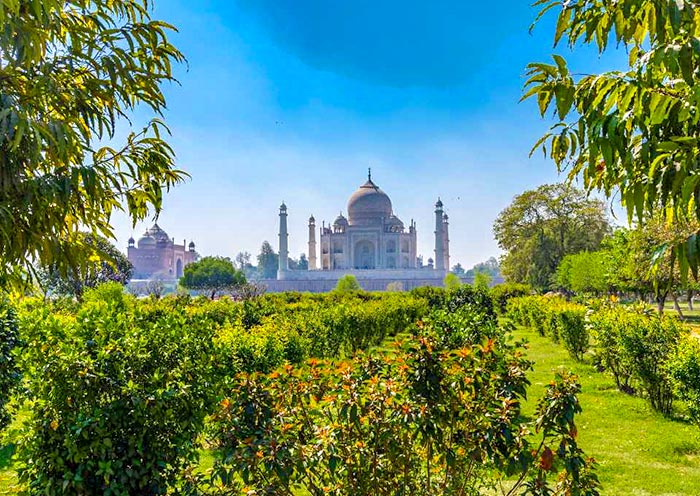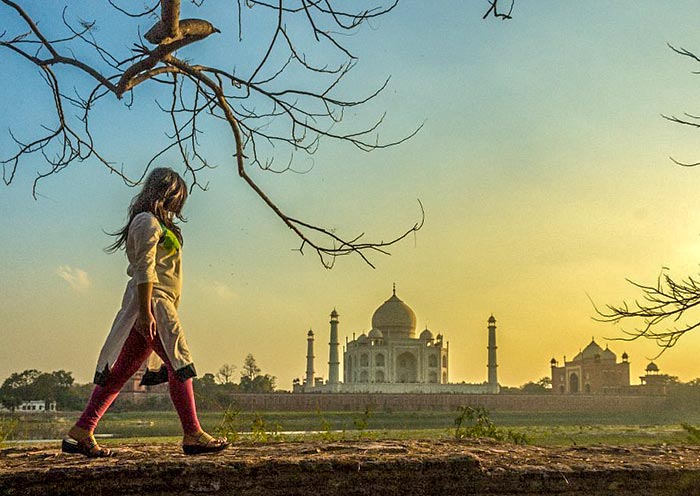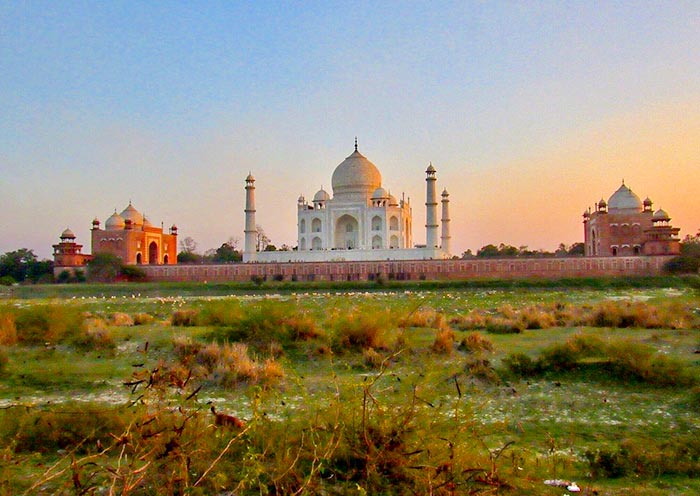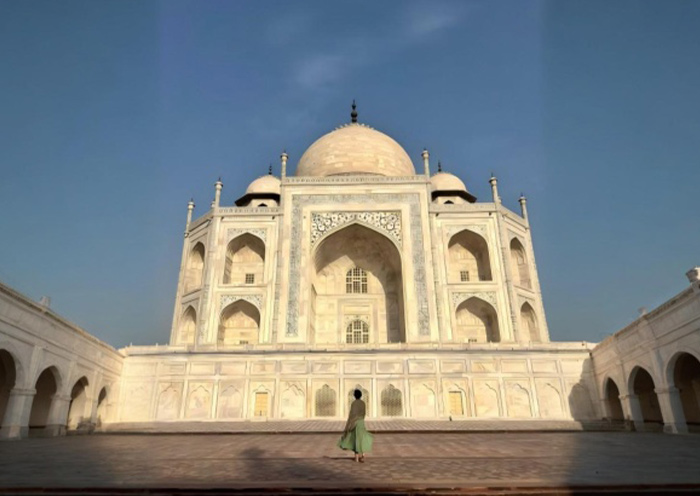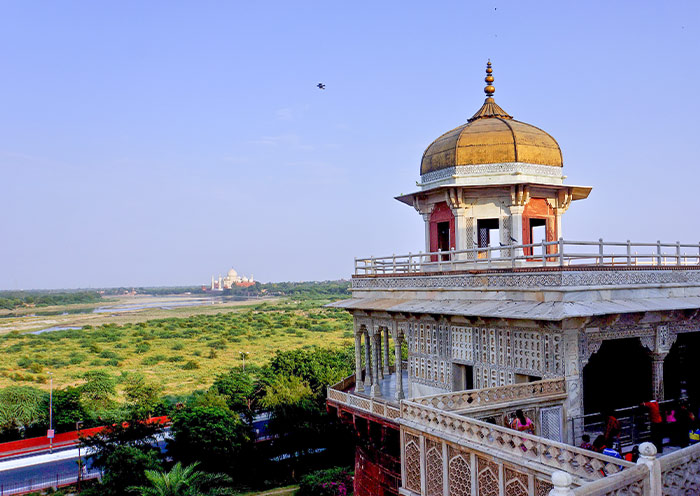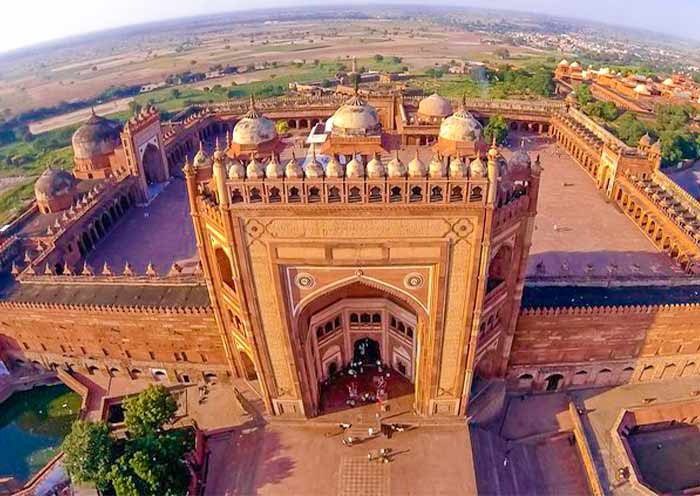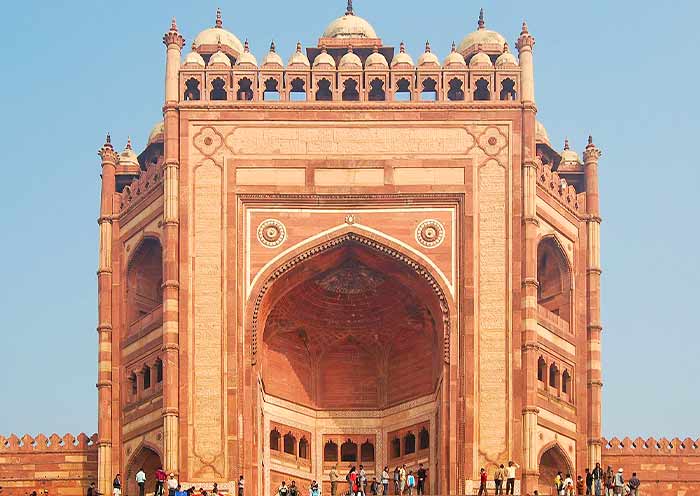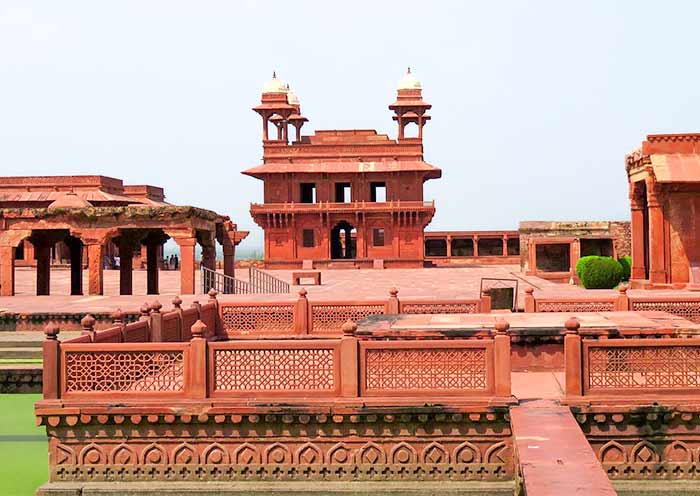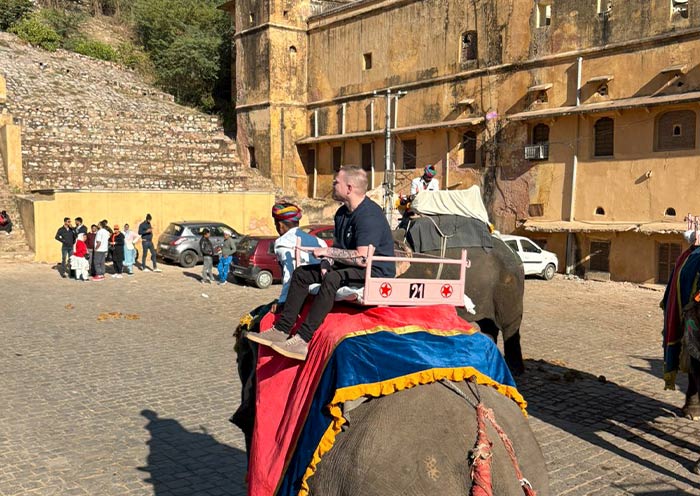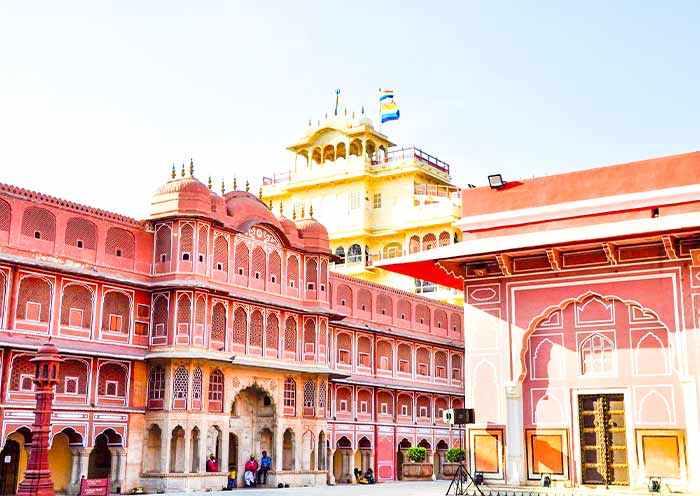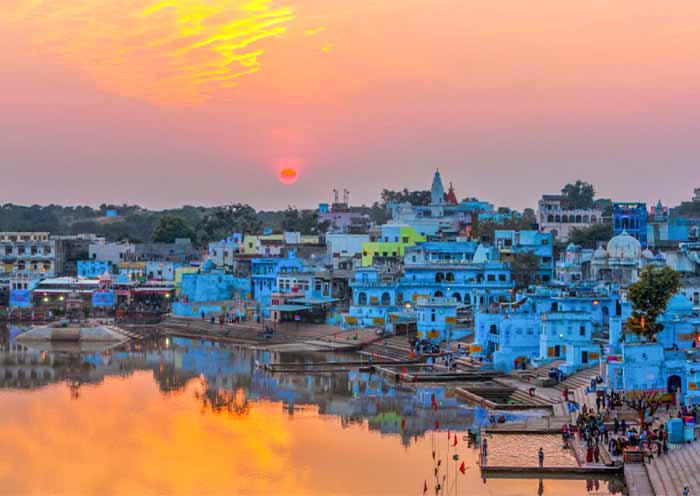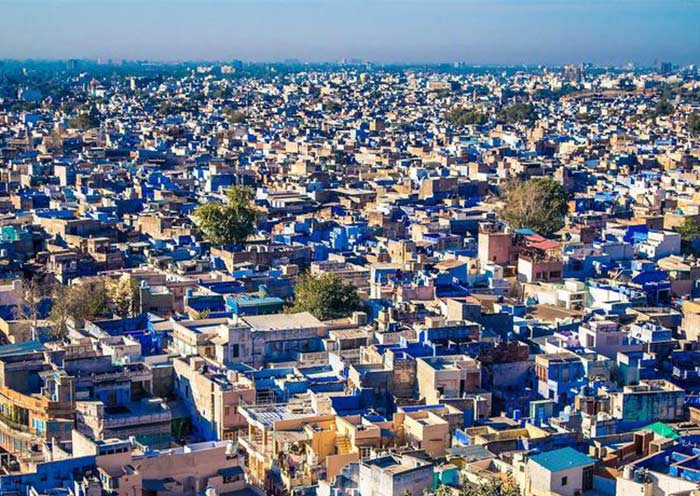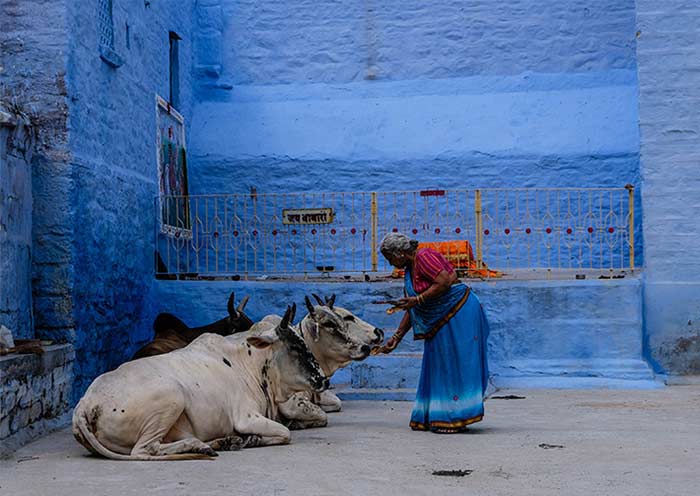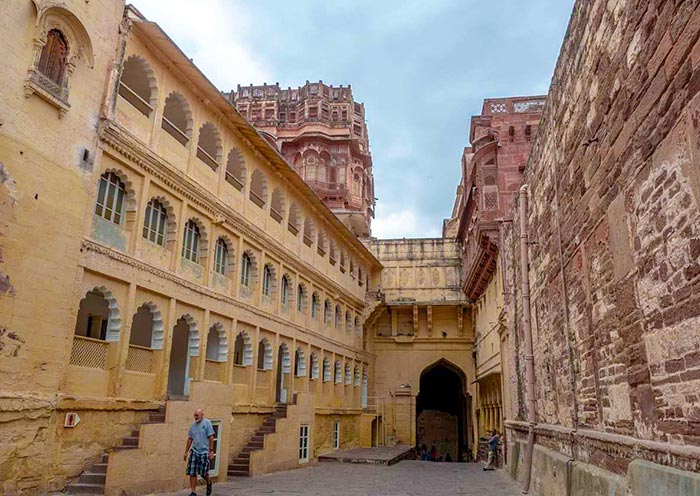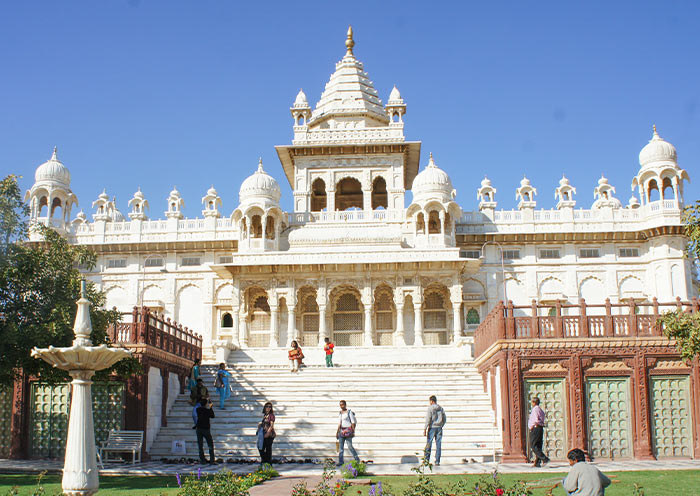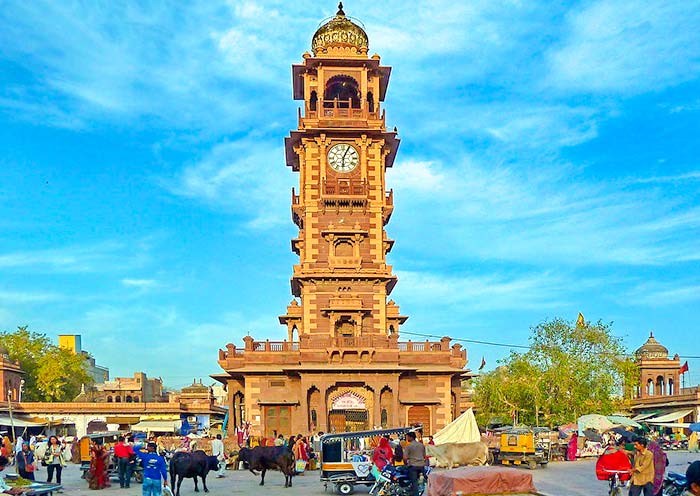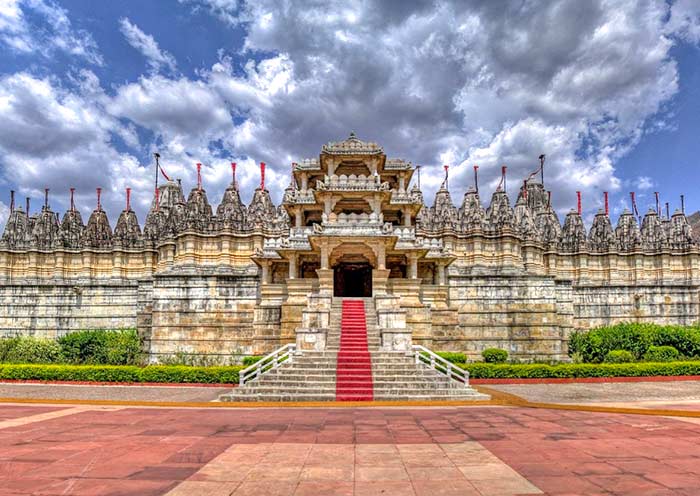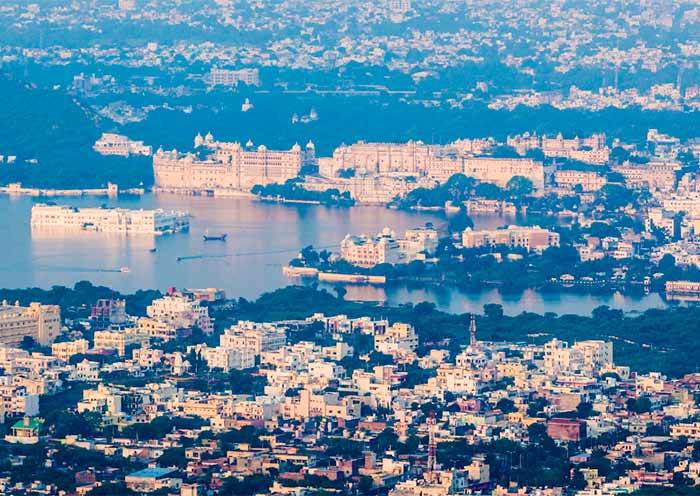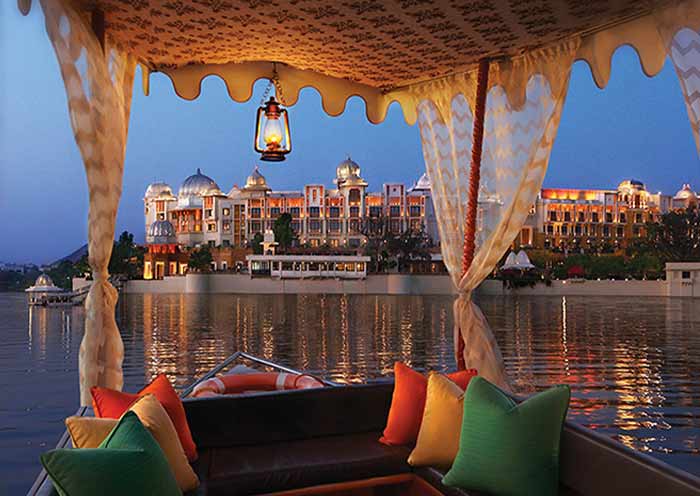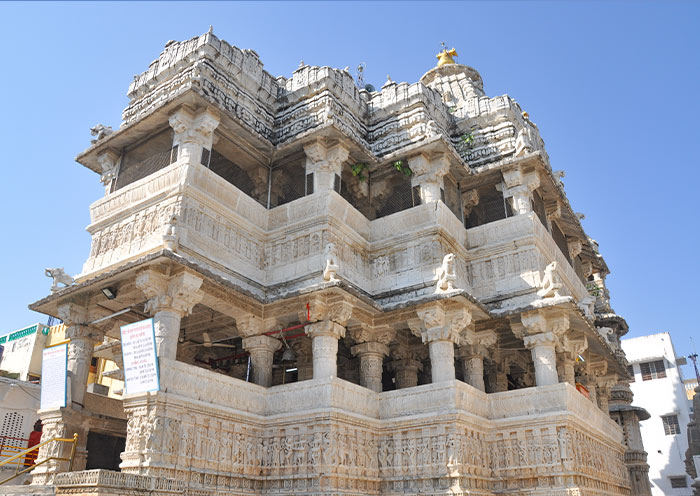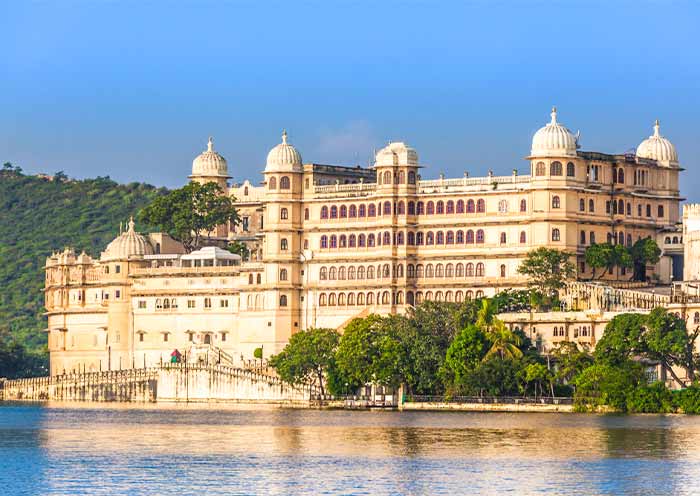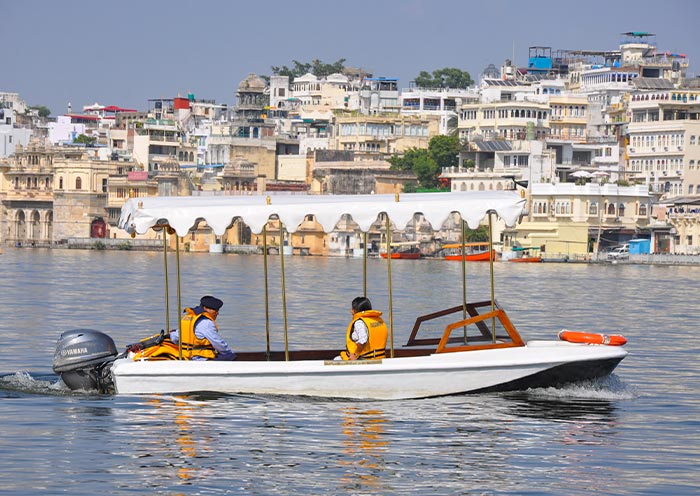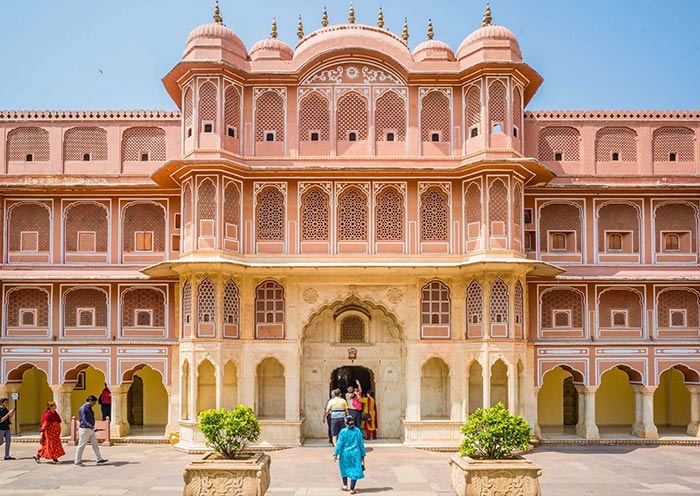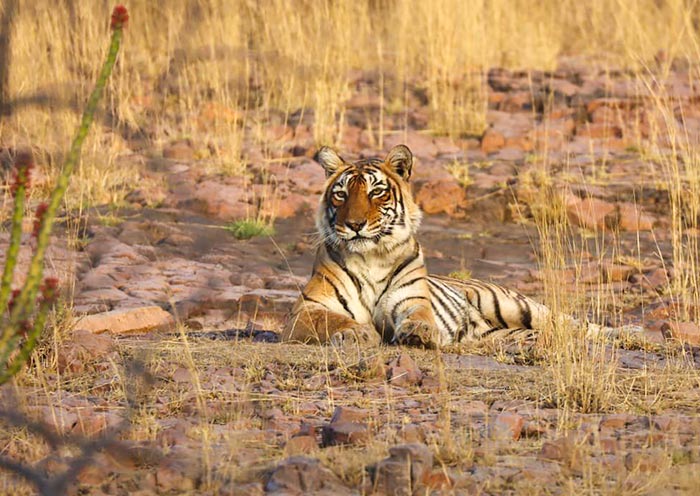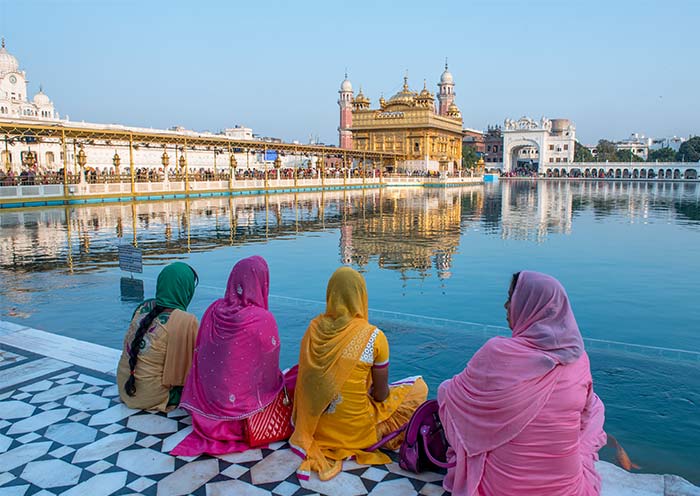Start your day with a delightful breakfast, and prepare to explore the city's most iconic sights. Visit the Jagdish Temple, and the City Palace, and take a boat ride on Lake Pichola. Don't forget to enjoy the views of the Monsoon Palace.
Your first destination is the Jagdish Temple. This Indo-Aryan temple was built by Maharana Jagat Singh, who ruled Udaipur between 1628 and 1653. Known as the largest temple in Udaipur, this three-story structure is dedicated to Lord Vishnu and is adorned with carved pillars, decorated ceilings, and painted walls. Upon entering, a meticulously carved archway greets you, featuring intricate sculptures of elephants, horses, and various other animals. The main shrine houses a figurine of the four-armed Lord Vishnu, carved out of a single black stone. The temple's spire or, standing around 80 feet high, dominates Udaipur's skyline. The main shrine is surrounded by four smaller shrines dedicated to Lord Ganesha, the Sun God, Goddess Shakti, and Lord Shiva. An elegant marble staircase of 32 steps leads you up to the main shrine, where a notable brass representation of Garuda, the half-human, half-eagle protector of Lord Vishnu, stands guard. With its rich history and architectural brilliance, the Jagdish Temple is sure to leave an indelible mark on any visitor.
Continue your journey to the City Palace, located just 150 meters from the Jagdish Temple. Perched majestically on the banks of Lake Pichola, the City Palace is Rajasthan’s largest palace, and has 11 smaller palaces, with a facade 244m long and 30.4m high initiated by Maharana Udai Singh II. It is an architectural marvel and represents an exquisite blend of Rajasthani, Mughal, European, and oriental architectural styles. All the palaces were built with marble and granite and its walls and towers, painted in a soft shade of cream and white, stand out against the vibrant blue of the lake, earning Udaipur the nickname "The White City." The palace was built atop a hill, with many balconies offering a panoramic view of the city and its surroundings.
Enter through the Badi Pol (Great Gate), leading you to the Tripolia Gate, where kings were weighed against gold and silver, which was then distributed to the poor. Inside, the palace complex is a maze of courtyards, pavilions, terraces, corridors, rooms, and hanging gardens, each more splendid than the last. The main part of the City Palace is open as the City Palace Museum, with rooms extravagantly decorated with mirrors, tiles, and paintings, and housing a large and varied collection of artifacts. Noteworthy areas include the Baadi Mahal, a pretty central garden that gives fine views over the city; the Mor Chowk (Peacock Courtyard ), known for its stunning glass mosaics of peacocks; the Manak Mahal (Ruby Palace) for its collection of crystal and porcelain figurines; and the Zenana Mahal, which once housed the royal ladies and now contains a long picture gallery with lots of royal hunting scenes.
No visit to Udaipur is complete without a boat ride on the tranquil waters of Lake Pichola. This artificial freshwater lake, created in the 14th century, is now 4km long and 3km wide, and is surrounded by magnificent hills, palaces, temples, and bathing ghats. A boat ride (about 45 mins ) here offers a serene experience and a different perspective of the city's palatial beauty, including splendid views of the City Palace stretching along the east bank, the picturesque island palaces of Jag Mandir and Jag Niwas (Lake Palace), and the bustling ghats.
The final highlight of your day should be a visit to the Sajjan Garh Palace, also known as the Monsoon Palace. Perched on a hilltop, and overlooking the Fateh Sagar lake, this white palace seems just like a fairy-tale castle, one which holds within its walls memories of kings and queens. It offers unparalleled views of Udaipur and its surrounding lakes against the backdrop of the setting sun. Originally intended as an astronomical center to watch the monsoon clouds, it now serves as a vantage point for tourists seeking breathtaking views. The drive to the palace is equally enchanting, winding through the Sajjangarh Wildlife Sanctuary, home to a variety of flora and fauna, where you might spot wild animals like chital, sambar, wild boar, and blue bull.



